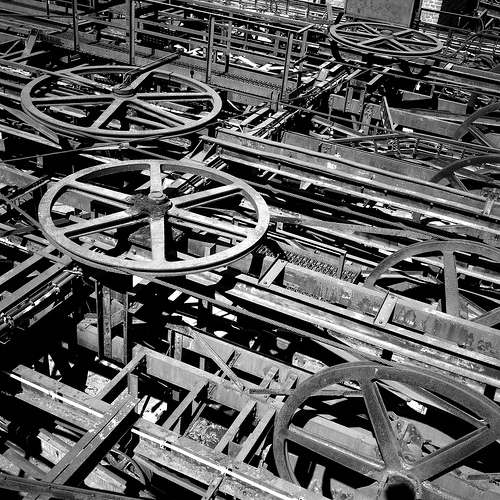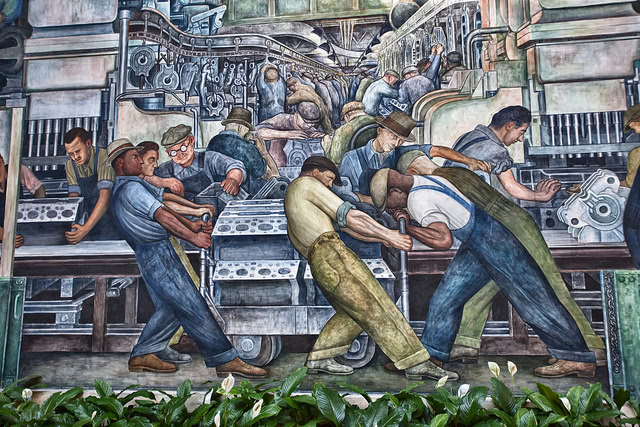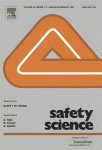Change pressure and system adaptation — accelerating technology and human-machine-system performance
Context of the workshop
Risk management in complex technological systems has been the integrating theme of the recent Bad Homburg workshops organized by the New Technologies and Work network. In the forthcoming meeting, risk management will be tackled from a new point of view. The inherently dynamic nature of complex technological systems will be emphasized, and the impact of the increasing pace of technological development on the mastery of the dynamics of the systems will be discussed.
At least the following trends have been identified to have an effect on the conduct of industrial risk management (Rasmussen 1996):
- The very fast pace of technological change
- The increase in scale of industrial installations
- Rapid development of information and communication technology
- Aggressive and competitive business environment.

These trends, the first of which will have our special attention in the forthcoming meeting, do not, however, determine in a straightforward way the future of human work and man’s interaction with complex systems. According to the systems approach, technology itself is a human activity. Therefore, the direction and pace of technological changes must also be understood as more or less conscious results of human efforts. These efforts are regulated through the prevailing conceptions of the man-environment relationship.
Through technical innovations, man has continuously enlarged the space that can be considered his environment. While the possibilities for action have thus increased, there are also serious problems in man’s interaction with this systems environment. The most evident — but not the only — signs of such incongruities are accidents and problems of environmental degradation, which almost always seem to occur unexpectedly. It may be that the present way of conceiving the man-environment relationship and the methods of modeling it are becoming insufficient in respect of the actual control demands.
These models may no longer provide sufficient or valid means for studying control activity with the environment.
The NeTWork symposium will be organized around four topics, briefly described below.
Frameworks for modelling Human-Machine-System performance in accelerating technologies
In this section, recently proposed general frameworks for modeling human interaction with complex environments will be introduced and discussed. The concepts might originate in different disciplines or practical domains and may also focus on different levels of the man-environment relationship. They share the goal of defining relevant ways of representing this relationship for understanding and influencing adaptive interaction in the dynamic situation.
We want to ask ourselves
- What frameworks are there?
- What are their benefits or utilities?
- What limitations might they have?
Analytical perspectives on accelerating technologies
In this section, conceptually oriented empirical work will be presented. We are looking for approaches and practical research work from areas where technology is rapidly changing, with approaches such as concurrent design, so that system adaptation may be lagging. The contributions should report work in which the dynamics of human interaction with complex environments are looked at from different points of view. Such perspectives could be:
- time as a constraint of control
- situation awareness
- appropriateness of information presentation and ecological design of interfaces
- metacognition and reflection as resource
- distributed cognition, cooperation and communication, crew resource management (CRM)
- training under changing qualification demands
- organizational learning in relation to design life cycle
- and other perspectives of accelerating technologies
Aviation as a case study of a system with accelerating technologies
In this section we want to concentrate on one system and the problems of human interaction with, and control of it and its technology. The system chosen is aviation and air traffic control. We want to deal with it from different levels in the system in order to see how the activities in the system and the models we have for them can and do interact. The views chosen should be from different levels (from the regulatory level to the sharp end, i.e. operating and maintenance), from the point of view of different activity systems (operating aircraft, air traffic control, …) and from the different analytical perspectives indicated above.
Research needs
In the concluding section, the results of the previous sessions will be summarized with the aim of conceptualizing the constraints of accelerating technological change. A further aim is to articulate relevant research topics that would provide means for coping with this problem in the various fields of modern life.

Workshop organizers
-
Leena Norros, VTT
-
Barry Kirwan, Eurocontrol
Outputs

The papers presented during the workshop and the following discussions led to the publication of a special issue of the journal Safety Science.
- Kirwan, B. (Ed.) (2001). Safety and accelerating technologies. Safety Science, 37(2-3).
Image credit:
- Laurent Gauthier (Creative-Commons BY licence, http://www.flickr.com/photos/loranger/4694980693/)
- Jason Mrachina (Creative-Commoons BY-NC-ND licence, http://www.flickr.com/photos/w4nd3rl0st/7291376240/)